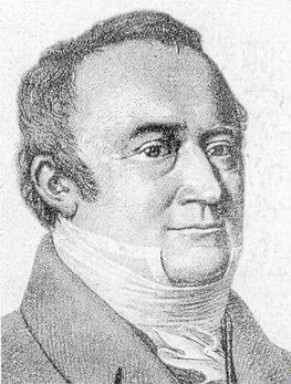Ernst Friedrich Von Schlotheim on:
[Wikipedia]
[Google]
[Amazon]
 Ernst Friedrich, Freiherr von Schlotheim (April 2, 1764March 28, 1832),
Ernst Friedrich, Freiherr von Schlotheim (April 2, 1764March 28, 1832),
 Ernst Friedrich, Freiherr von Schlotheim (April 2, 1764March 28, 1832),
Ernst Friedrich, Freiherr von Schlotheim (April 2, 1764March 28, 1832), German
German(s) may refer to:
* Germany (of or related to)
**Germania (historical use)
* Germans, citizens of Germany, people of German ancestry, or native speakers of the German language
** For citizens of Germany, see also German nationality law
**Ger ...
palaeontologist
Paleontology (), also spelled palaeontology or palæontology, is the scientific study of life that existed prior to, and sometimes including, the start of the Holocene epoch (roughly 11,700 years before present). It includes the study of fossi ...
and politician, was born in Allmenshausen, Schwarzburg-Sondershausen.
He was Privy Councillor
A privy council is a body that advises the head of state of a state, typically, but not always, in the context of a monarchic government. The word "privy" means "private" or "secret"; thus, a privy council was originally a committee of the mon ...
and President of the Chamber at the court of Gotha. Becoming interested in geology
Geology () is a branch of natural science concerned with Earth and other astronomical objects, the features or rocks of which it is composed, and the processes by which they change over time. Modern geology significantly overlaps all other Ear ...
he gathered a very extensive collection of fossil
A fossil (from Classical Latin , ) is any preserved remains, impression, or trace of any once-living thing from a past geological age. Examples include bones, shells, exoskeletons, stone imprints of animals or microbes, objects preserved ...
s. In 1804 he published descriptions and illustrations of remarkable remains of (Carboniferous
The Carboniferous ( ) is a geologic period and system of the Paleozoic that spans 60 million years from the end of the Devonian Period million years ago ( Mya), to the beginning of the Permian Period, million years ago. The name ''Carbonifero ...
) plants, ''Ein Beitrag zur Flora der Vorwelt''.
His more important work was entitled ''Die Petrefactenkunde'' (1820). In this he incorporated the plates used in his previous memoir and supplemented it by a folio atlas (1822), in which he illustrated his collection of petrified and fossil remains of the animal and vegetable kingdom of a former world. For the first time in Germany the fossils were named according to the binomial system
The binomial system ( es, Sistema binominal) is a voting system that was used in the legislative elections of Chile between 1989 and 2013.
From an electoral system point of view, the binomial system is in effect the D'Hondt method with an ope ...
of Linnaeus. His specimens are preserved in the Berlin
Berlin ( , ) is the capital and largest city of Germany by both area and population. Its 3.7 million inhabitants make it the European Union's most populous city, according to population within city limits. One of Germany's sixteen constitue ...
Museum. He died at Gotha.
References
{{DEFAULTSORT:Schlotheim, Friedrich, Baron von 1764 births 1832 deaths People from Kyffhäuserkreis People from Schwarzburg-Sondershausen German paleontologists